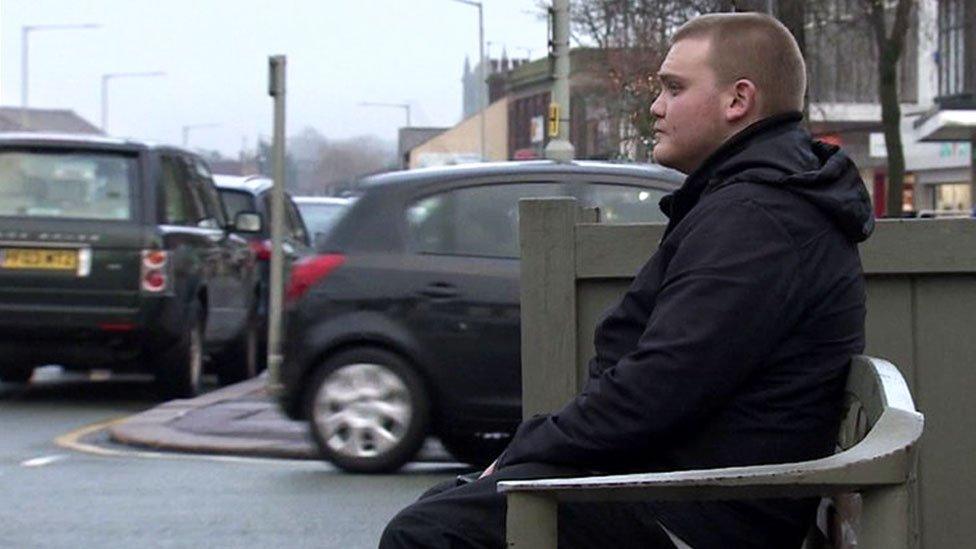Young homeless blocked from renting, says report
- Published
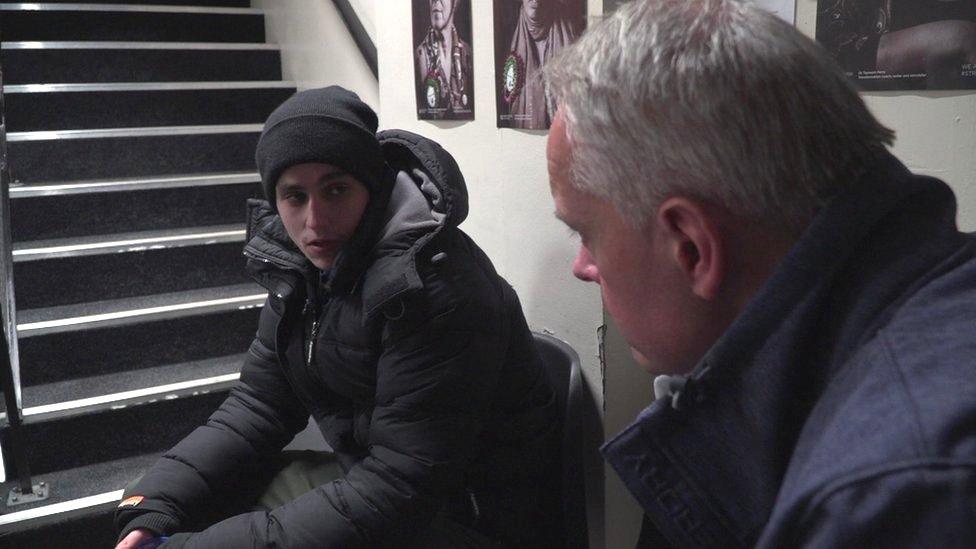
As the temperature drops, Sam can no longer cope with sleeping rough
"It's very, very tough, very cold," says Sam, 20, who has just walked into the lobby of a centre for young homeless people in Manchester.
As the temperature dips towards freezing, he needs a bed for the night.
On and off, he says, he's been homeless for three years, after a family breakdown, between hostels, friends' sofas and, too often, the streets.
It's increasingly hard for young people like Sam to find places to rent, according to the charity Centrepoint.
Research for the charity suggests that only one in five private landlords is willing to let to a young person who has been homeless and only one in 10 said they let shared properties, the type of housing most affordable for this age group.
Just over 1,000 private landlords from England, Scotland and Wales were questioned by YouGov for Centrepoint in August.
'Keep warm'
In the lobby, a display board shows no hostel spaces available in the whole of Manchester - it takes hours, until well into the evening, before the team finds him somewhere to stay.
The next day he will be back, hoping for longer-term accommodation, hoping to avoid more winter nights sleeping rough.
"The best thing to do is to keep warm, wear as many layers as you can and to remember to stay somewhere hidden, not in a doorway where you can get easily targeted by people.
"I don't go in a doorway myself. I go somewhere out of the way and then get up early."
Sam spends his days walking around central Manchester, on cold days the Arndale Shopping Centre is a good place to keep warm.
His passions are music and football, but there is little chance of him pursuing any career while his accommodation is so unstable.
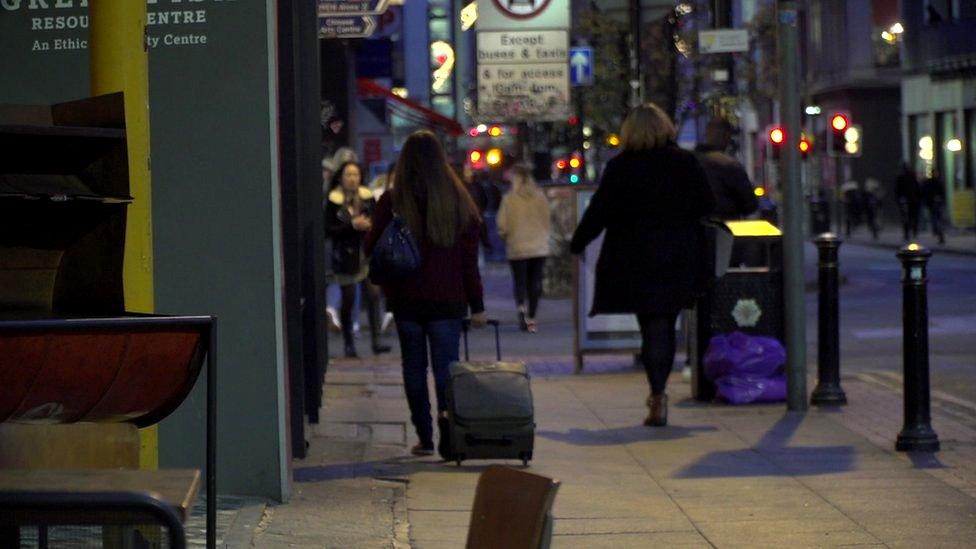
Hidden homeless: Young people can struggle to find accommodation
A flat would be "a big stepping stone to another big stepping stone to help me sort my life out", he says.
Centrepoint's report shows fierce competition for shared housing, with students and young professionals able to pay far more in rent than people like Sam.
On top of that, landlords want deposits and a month's rent in advance and then there are agency fees.
Young homeless people who are on benefits or low pay and who lack savings or financial support from parents, simply can't afford these upfront costs, says the charity.
Pressure on housing is so great that the charity has noticed it is getting tougher for the young people it supports to move out of its hostels and live independently.
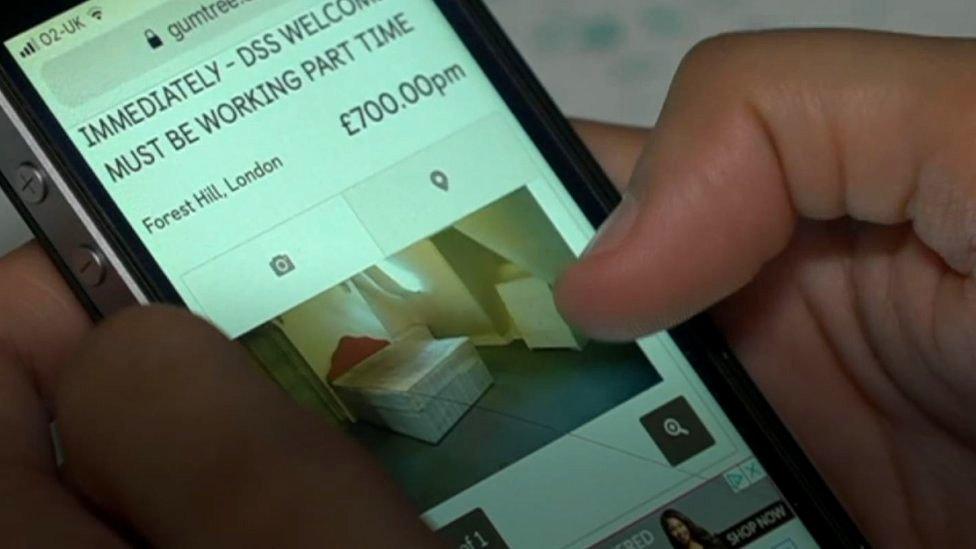
Not many landlords are prepared to rent to DSS claimants
Currently, one in five young people in Centrepoint hostels is ready to move on but they are effectively "bed-blocking", because there is nowhere else for them to go.
Aidan, 24, says he has been ready to leave his Centrepoint hostel in London for more than a year, but cannot find a landlord to take him.
Too many refuse to take tenants on benefits, as Aidan says: "You'll find properties but as soon as you look at the information, they say, 'no DSS accepted'."
He became homeless four years ago, after having to flee the family home because of domestic violence when he refused an arranged marriage to someone from Pakistan.
Since then he has stayed in a series of hostels and refuges.
"You learn to put up this wall so that people can't see you being vulnerable," he says.
Aidan says he cannot afford to pay rent and has been homeless for four years.
Centrepoint chief executive Seyi Obakin says the charity is urging private landlords to look beyond the "caricature" of young people as unreliable tenants.
"Actually most young people are not like that at all. Young people can be great tenants.
"So we need landlords not to succumb to this narrative that young people are somehow a difficult bunch of people."
The report's other recommendations are for the government, including:
targeted spending on social rented housing for young people
new regulations to stop landlords discriminating against benefit claimants
allowing benefit claimants to have rent paid direct to landlords
improving lower benefit rates for under-25s unable to live at home
A government spokesman said the UK spends £24bn a year on housing benefits, proportionally more than any other developed country.
"We are investing £1.2bn to tackle homelessness and we have delivered over 293,000 affordable rental homes since 2010.
"With Universal Credit, rent can be paid directly to landlords and we support vulnerable claimants to make housing payments," said the spokesman.
- Published11 June 2018
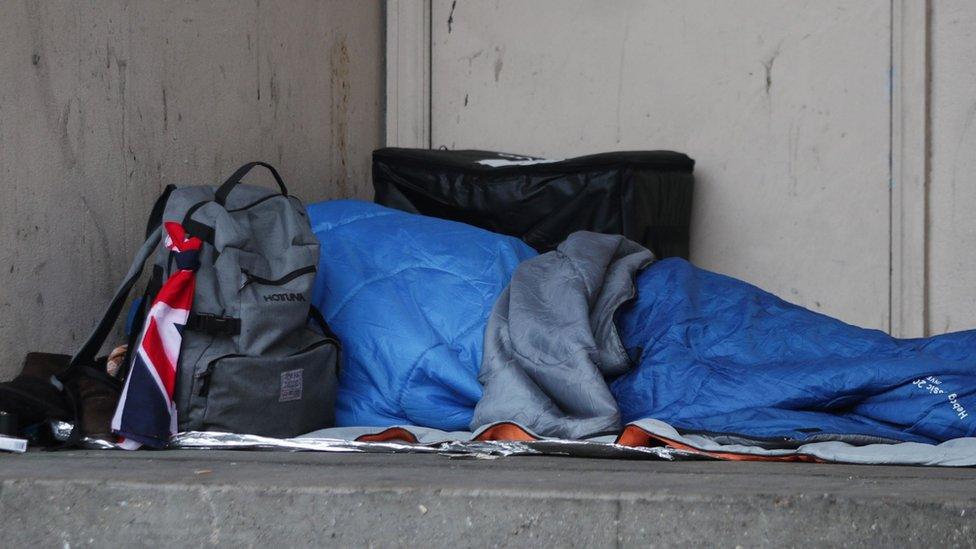
- Published21 December 2017
